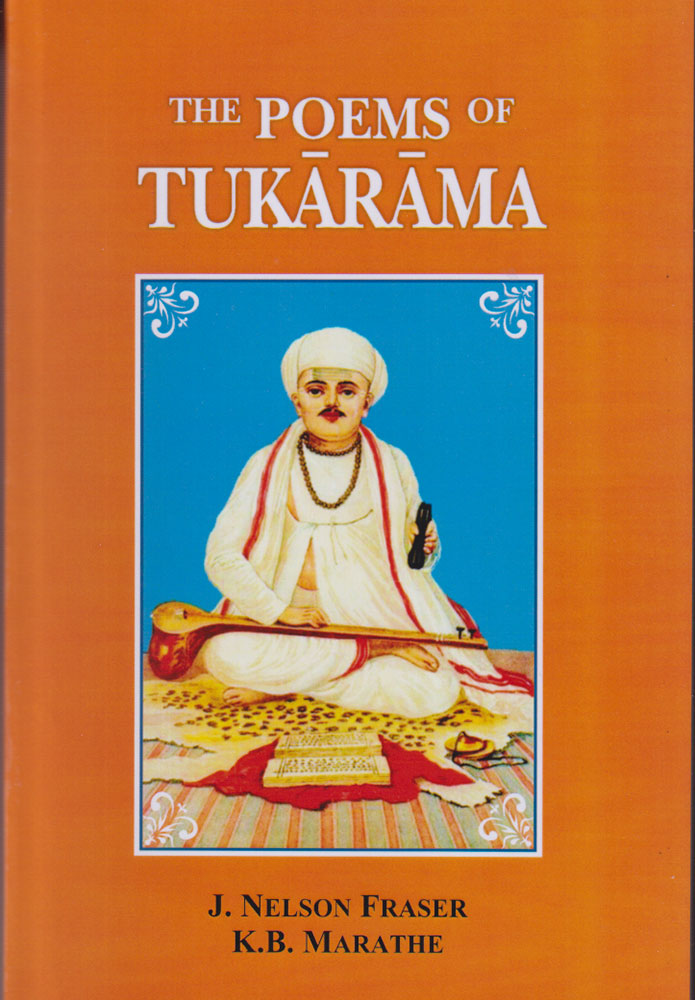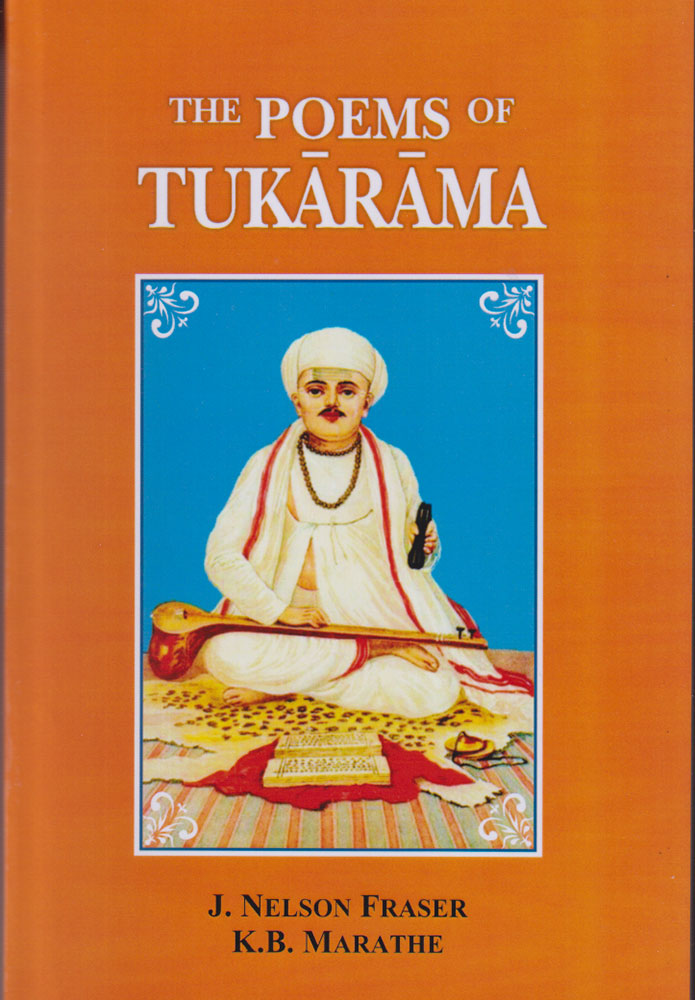The Poems of Tukaram
![]() 100% Genuine New Books
100% Genuine New Books
![]() Fast Shipping with Tracking Number
Fast Shipping with Tracking Number
Secure Payments via UPI, Cards & Wallets
![]() Trusted Support & Easy Returns
Trusted Support & Easy Returns
The Poems of Tukaram - Paperback is backordered and will ship as soon as it is back in stock.
ISBN : 9788120808515, 8120808517
Year of Publication : 2007
Edition : 1st
No. of Pages : 522
Language : English
Condition : New
Publisher: Motilal Banarsidass Publishing House
Free shipping on orders over Rs. 249
Free shipping on orders over Rs. 249
We offer free shipping on orders above Rs. 249 in India. For orders below this threshold, a nominal shipping fee may apply, which will be clearly indicated during the checkout process.
How long will it take to receive my order?
How long will it take to receive my order?
The delivery time varies depending on your location. Generally, orders are processed and shipped within 1-3 business days. Once shipped, you can track and expect your order to arrive within 3-7 business days (the duration may vary depending on your location). For more information, please refer to our shipping policy.
Chat with a Real Person
Chat with a Real Person
WhatsApp chat is dedicated to assisting with after-sales queries regarding delivery, returns, and payments. Click below to initiate chat with us on WhatsApp:
[Bookstaa WhatsApp Chat].
For all other inquiries, please visit our customer support page or email us at support@bookstaa.com.
Couldn't load pickup availability
Description
Description
Born in the little village of Dehu, sixteen miles north-west of Poona, probably in the year 1608 A.D., the poet Tukaram was by caste a Sudra and by occupation a corn retailer. After a famine brought distress and bankruptcy, he devoted himself to the family God, Vitthoba of Pandharpura. He soon became a well known teacher, and crowds of people were attracted to his kathas and bhajans. The circumstances of his death are unknown. The popular account states that he ascended into Heaven in the car of Visnu; a note on the Dehu manuscript of his poems says that "Tukoba started on pilgrimage"-and was, apparently, seen no more.
1. The Life of Tukarama: I. Autobiography - (i) Thoughts about the world (ii) Humility, sin, and misery (iii) Prayers (iv) How he awoke (v) His own disqualifications (vi) His motives (vii) The nature of his mission (viii) Appeals (ix) His sense of authority and assurance (x) A prayer for a pupil (xi) Consolation and happiness in God (xii) Admonitions to himself (xiii) Some incidents in his life. II. Descriptions and Invocations III. Pandhari IV. Dehu V. The Nature of God - (i) In Himself (ii) His relation to the world (iii) Union with God necessary (iv) Distinction from God necessary (v) The all-pervading character of God (vi) The universality of God's grace (vii) God's power (viii) The power of God's name (ix) God's generosity and condescension (x) God's protecting love VI. The problem of Action: (i) The perplexing aspect of the world (ii) The impossibility of escaping our past (iii) Nothing is gained by works of law or austerities (iv) Our faith a reward of merit VII. The sense of sin VIII. Remonstrances with god IX. Prayers X. The Conditions of Acceptation XI. The Necessity of Experience XII. Triumphant Happiness XIII. Raillery of God XIV. Faith and Trust XV. The Moral Ideal (i) Purity (ii) Sincerity (iii) Truthfulness (iv) Simplicity (v) Humility (vi) Peacefulness (vii) Perseverance (viii) The service others (ix) General (x) There are few who attain XVI. Life under the influence of religion XVII. Our attitude towards the world - (i) The problem (ii) That we should make the most of it (iii) That we should renounce it XVIII. The Saints - (i) Their character (ii) Their services to men (iii) The insignificance of caste in comparison of virtue XIX. Appeals and Exhortations XX. Rebuke and Admonition - (i) The evil age (ii) The obstinacy of the wicked (iii) Ill-temper and want of charity (iv) Pride (v) Deceit (vi) Greediness (vii) Worldliness (viii) Sensuality (ix) Hypoeritical professions (x) Indifference to religion and churlish conduct to the saints (Various) XXI. True worship- (i) Referring to outward observances (ii) Inner qualities are more than outward observances XXII. The use of images in worship XXIII. False Religious Observances XXIV. Our attitude towards traditional forms of worship XXV. Against false teachers and impostors XXVII. Krishna-(i) His birth (ii) His childhood (iii) His amusements with the cowherds (iv) How they made a meal together (v) How they stole the butter (vi) The condescension implied in his conduct (vii) Various reflections and comments (viii) The passion he inspired in the cowherd damsels (ix) How he stole their clothes while they were bathing XXVIII. In praise of Rama XXIX. Abhangas employing various stories from my thology XXX. Abhangas Employing images from games XXXI. Various village characters XXXII. Abhangas employing the language of common occupations XXXIII. The faithful devotee described under the image of a paik XXXIV. Worldly comforts described under the image of a blanket XXXV. Devotion described under the image of a woman addressing her paramour, Notes, Appendix-I. Proper names, II. Ceremonies and Beliefs Referred to by Tukaram, III. Certain Classifications which are referred to by Tukaram
About the Publisher

Motilal Banarsidass Publishing House (MLBD)
Motilal Banarsidass Publishing House, popularly known as MLBD, is one of the oldest and most prestigious publishing houses in India, established in 1903.
With over a century of legacy, MLBD has been at the forefront of publishing scholarly works in the fields of Indology, Sanskrit, philosophy, religion, spirituality, yoga, Buddhism, and Jainism.
Renowned for its authenticity and academic rigour, MLBD's books are trusted by researchers, scholars, and readers across the globe.
With more than 5,000 titles in circulation, MLBD continues to uphold its commitment to preserving and promoting India’s rich cultural and philosophical heritage.
Bookstaa is an authorized distributor of MLBD books, ensuring 100% genuine and original publications for our readers.

